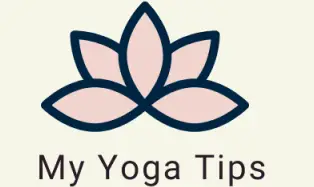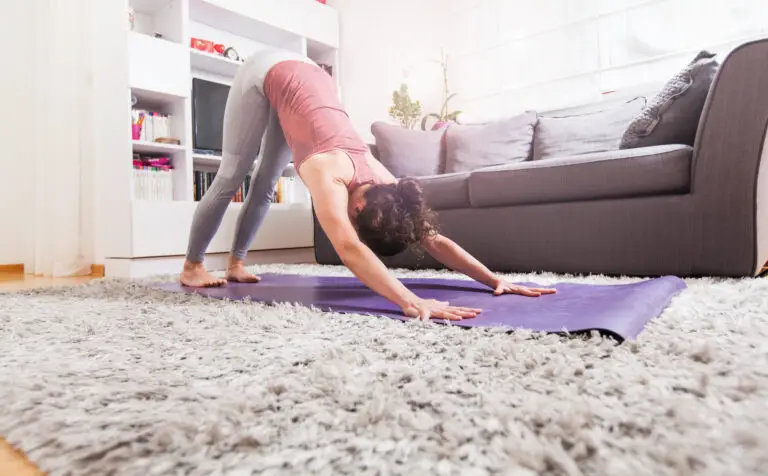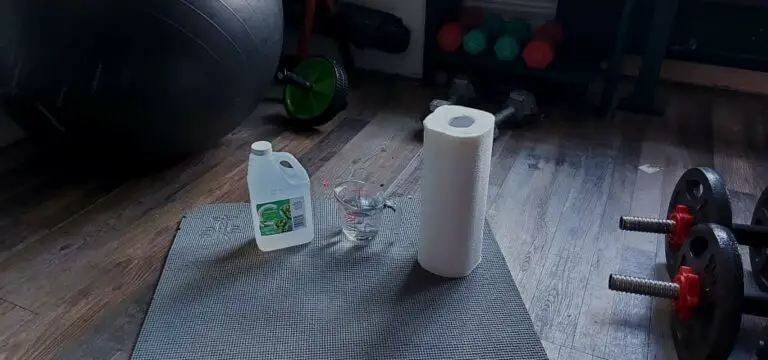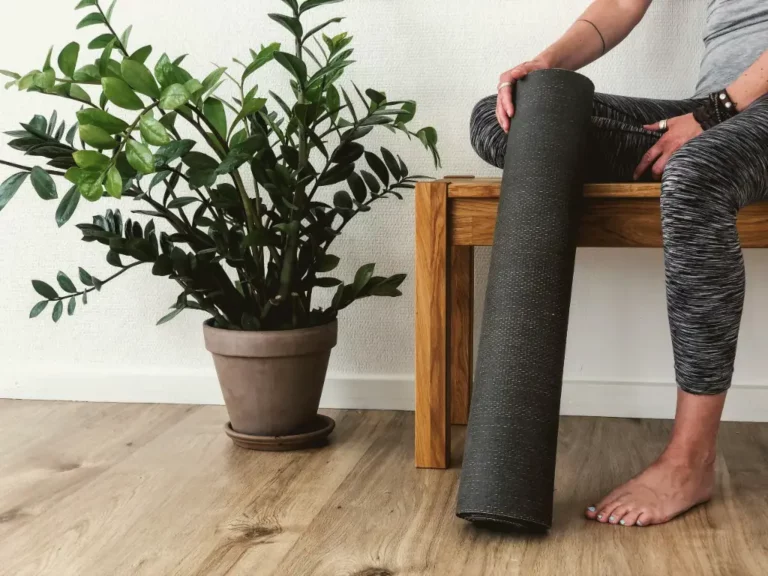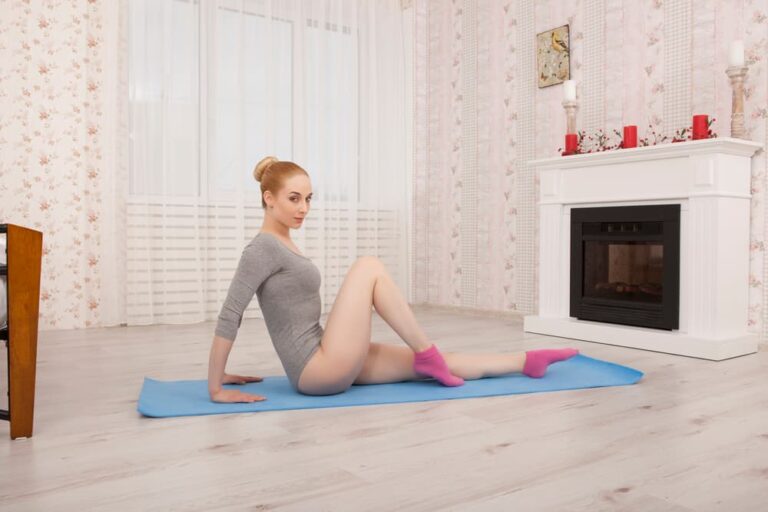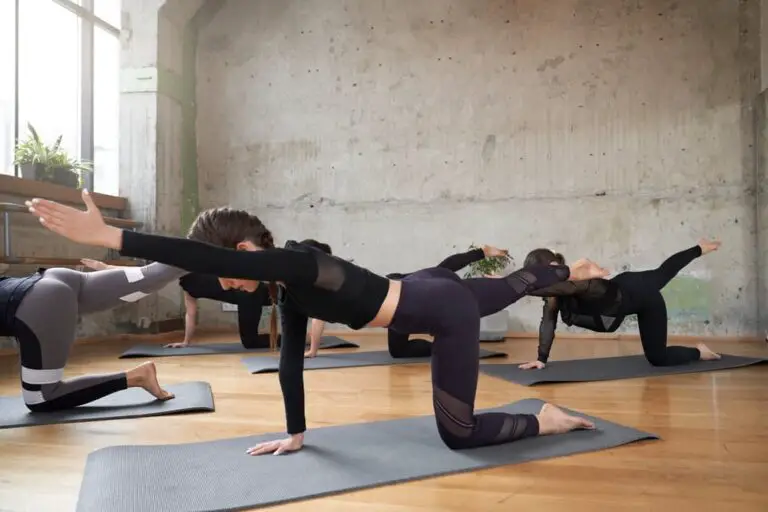Here’s Why (And How) You Salt Yoga Mats
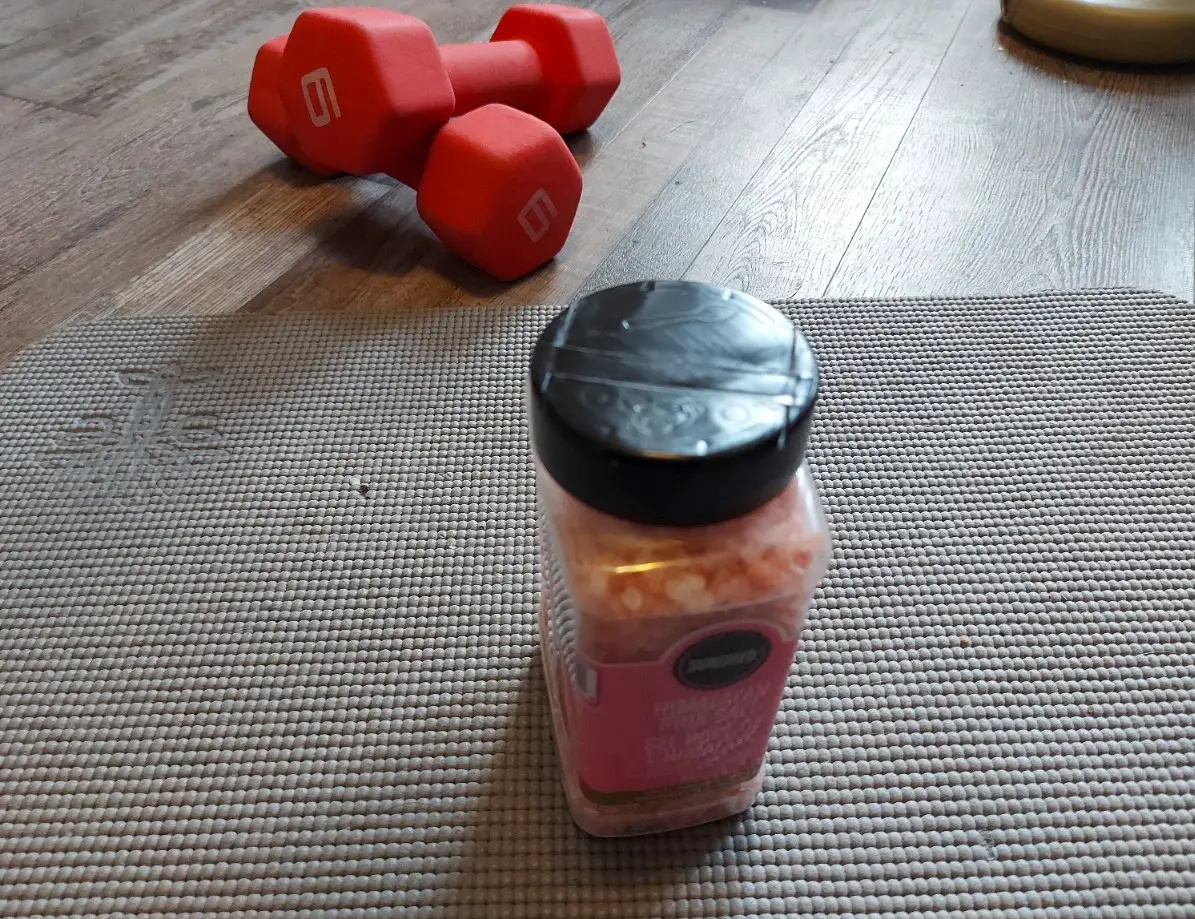
When you are in a down-dog, you want to be focused and anchored and not feel distracted or worried about misalignment that can cause injuries. A new yoga mat can be the inspiration to rededicate yourself to a daily yoga practice. But sometimes, a new yoga mat can be too smooth and slippery. One way to break in a new yoga mat is to give it a salt scrub.
A new yoga mat should be salted to get rid of its slippery surface made from PVC (polyvinyl chloride) or TPE (thermoplastic elastomer). A sea salt scrub speed up the roughening of a mat’s slick surface. Everyday use and salty sweat will break the slippery surface too, but it takes far longer.
Doing an effective yoga workout focuses on breathing and alignment of your body while also feeling comfortable and relaxed. Slipping and fighting with your mat destroys the meditative benefits of yoga.
There are several methods to tame your yoga mat. Doing a lot of high-intensity yoga can coat your mat in sweaty salt crystals that will help over time. Treat your yoga mat with sea salt if you want a quick fix.
What Does Breaking-In A Yoga Mat Mean?
Breaking in a yoga mat refers to the different ways of making a new mat less slick. The more you work out on your yoga mat, the less slippery it will become.A regular PVC mat will take about 3 months to break in if you practice 3 times a week. The type of yoga you do could roughen the surface of your mat faster or slower. Hardcore, high-energy movements could help get your yoga mat ready in 2 – 4 weeks.
Treating your yoga mat as if it is a carpet can hasten the process of breaking it in. Walking over it with shoes on will not degrade the mat. The only problem is that it will stay slippery in some areas and not have an even texture all over. Dirty shoe marks on a yoga mat can be washed off. Washing often with mild soap and water is another way of breaking in your yoga mat.
How Do You Salt A Yoga Mat?
Giving your yoga mat a salt scrub to get rid of the overly smooth surface is easy. It is better to do this outside, but any cement or tiled floor will also work. You will be leaving the mat spread out for at least 24 hours, so choose a spot where it will not be in the way of foot traffic.
You will need a plastic sheet or old curtain to place underneath the mat. Have a bag of coarse sea salt, a bowl of hot water, plastic gloves,and pieces of old towels or washcloths ready. Gloves protect your hands from the salt that will dry out your skin. Any scratches or cuts on your hands will burn if you use bare hands. Salt your yoga mat in the following way:
- Spread a piece of plastic or tarp on the floor that is bigger than the size of your yoga mat.
- Throw handfuls of sea salt evenly all over the mat. Be generous.
- Rub the salt using a circular motion evenly over the mat with gloved hands. You can also use a rag or piece of towel to do this.
- Leave the salt on the mat for 24 hours.
- Do the scrubbing again and leave for another 24 hours. (You can skip this step if your mat is not too slippery to start with)
- Dip your cloth in the bowl of hot water and wipe off the salt. Rinse the cloth and repeat until the surface is salt-free.
- Take a dry cloth to dry the surface of the mat. (You can use a hosepipe to spray the salt off, but this will increase the drying time dramatically.) Leave it in a sunny spot until completely dry.
- You can hang the yoga mat on the clothesline but use a folded towel to soften the impact of the line.
- If you find that this has not helped enough, repeat the process.
Alternative Ways To Fix A Slippery Yoga Mat
There are several ways to slightly degrade the top surface of your yoga mat. The density and thickness of the yoga mat will influence which method works best. A thin mat can be washed in a washing machine. Do not place any soap in the washing machine and use a delicate cycle. Hang the yoga mat out to dry. Alternative ways to stop your mat slip-sliding are the following:
- Use a vinegar bath or spray. Mix white vinegar with clean water 50/50 and spray over the yoga mat. Scrub this over the surface with a sponge. (Never use paper products on a wet yoga mat.)
Leave the solution on your mat for a few hours before rinsing and drying. Hang up in a sunny or windy place.
- Throw a towel over your yoga mat when you do your practice. This will absorb sweat and texturize the surface of a smooth yoga mat. You can buy a dedicated yoga towel with a waffle weave that increases the grip.
- Use your mat more often for yoga, exercises, or just when you sit and read a book or watch a movie. Decide which side is up, and always do your workouts on the same surface.
- Powder your hands before a class if you have very sweaty hands. Keep a towel with you to wipe your hands when necessary.
Does Salting A Yoga Mat Shorten Its Lifespan?
The lifespan of a yoga mat depends on its quality and how often it is used. Most low-budget yoga mats start losing quality after a year or two. I have been using my medium-quality mat for ten years now, and it is still in good shape. A high-quality, dense mat should last ten years or longer.
Roughly 40 percent of yoga mats are manufactured from PVC. This plastic polymer material will only break down after 500 years or longer. The bit of extra surface degradation caused by giving your mat a salt treatment will take no significant time from its lifespan.
The Best Anti-Slip Yoga Mats
Some make of yoga mats are specifically made to be anti-slip. Look out for the following brands.
- Manduka Pro Series Yoga mats come with a lifetime guarantee.
- Complete Unity, Complete Grip Eco Yoga Mat.
- Medium budget options include Liforme and Lululemon yoga mats.
- Yoga mats made out of natural cork are very slip resistant and become even more so when you sweat on them.
- PRO YOGA MAT: Professional quality ultra-supportive 6mm thick yoga mat, for the serious yogi,…
Learn more!! see our article Tips To Choose The Best Yoga Mat and maintain for more information.
Conclusion
Focus on your yoga moves rather than on the behavior of your yoga mat. A salt treatment will sort out the annoyance of a slippery yoga mat. This will help you enjoy your class more and enhance your focus and control of movements.
